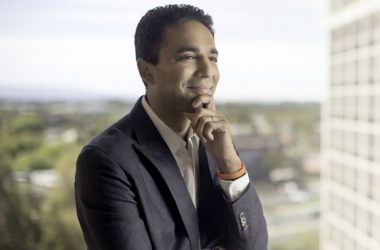Corporate raider and investment agitator Carl Icahn put eyes on Apple yesterday, announcing he now had a “large position” in the company and had urged CEO Tim Cook to boost a stock buyback program that has already committed $60 billion to removing shares from the market.
“We currently have a large position in Apple,” Icahn tweeted Tuesday. “We believe the company to be extremely undervalued.” In a follow-up tweet, Icahn added, “Had a nice conversation with Tim Cook today. Discussed my opinion that a larger buyback should be done now. We plan to speak again shortly.”
Apple’s stock received the usual “Icahn lift,” a pop in trading and share price that inevitably follows news that the billionaire investor has bought a major chunk of a company’s shares. By the end of trading Tuesday, Apple share price was up 5% to $489.57.
But for one analyst, Icahn’s interest in Apple was nuisance at best and trouble — with a capital “T” — at worst.
“This is absolute trouble,” said Patrick Moorhead of Moor Insights & Strategy. “There’s not one single positive thing [Apple] can take away from his interest, no matter how much you search.”
Moorhead was basing his take on Icahn’s reputation — he’s known for agitating for change — but more importantly, on the investor’s part in the ongoing privatization bid by Michael Dell, the CEO of the PC maker that carries his name. Moorhead, who in years past had worked at rival Compaq and supplier AMD, has kept a close eye on Dell for two decades. Recently, he blasted Icahn’s counter-proposal.
Icahn typically bulls into a company to demand management changes and advocate use of cash reserves to boost the share price, including paying higher dividends or buying back shares.
The latter is apparently what Icahn is after at Apple.
In 2012, Apple said it would use $10 billion of its cash horde to fund a share buyback program that would retire shares and thus increase the value of those still remaining. In April, the Cupertino, Calif. company increased the buyback program to $60 billion, which is to be spent through 2015.
Icahn wants more money for buybacks and an acceleration of the program.
At the close of the quarter that ended June 30, Apple had nearly $147 billion in cash, securities and other investments. Most of that, however, was banked overseas. Apple has resisted calls to repatriate it to the U.S. because it would have to pay taxes on those monies.
Apple borrowed some of the money it will spend on the stock buyback program.
In an interview on Tuesday with the Wall Street Journal, Icahn suggested Apple borrow more — interest rates remain low — to fund a larger buyback.
Icahn did not reveal his Apple holdings, but the Wall Street Journal pegged the investor’s stake at over $1.5 billion, or about a third of 1% of the company’s market capitalization. Other estimates have been closer to $1 billion.
At the very least, Icahn will be an ongoing distraction for Apple, particularly its CEO.
“This makes Tim Cook’s job a lot harder,” said Moorhead. “Not only does he have to bring Apple back to the expectations level [of years past] but now he has to deal with Icahn. And that’s a full-time job.”
Moor doubted Icahn would go away any time soon, not with the size of his investment. “One billion will get your noticed,” Moorhead said. “It carries weight.”
Icahn’s tactics are usually to rally other dissatisfied investors to his side, creating a large enough group to call for changes in management and corporate practices.
“This will be particularly difficult for Apple,” said Moorhead of Icahn’s interest. “The tack that Apple has taken is to only announce products when they want to.” Icahn and others, in other words, may pressure Apple to change its notoriously-secretive nature, perhaps even push it to talk more freely about upcoming hardware or services with the hope that such news would temporarily boost the stock price.
“Icahn can get his claws much deeper inside Apple than inside Dell, because there’s so much more to work with at Apple,” said Moorhead. “There are more ways to make money with Apple than with Dell.”
But others were sanguine about Icahn’s new focus on Apple.
Steve Milunovich of USB, for example, was not nearly as gloomy as Moorhead. “There doesn’t appear to be much to agitate for [at Apple] aside from a larger buyback, unless Icahn thinks Cook isn’t doing a good job,” Milunovich tweeted yesterday.
And Icahn can’t do much about Apple’s core business, which is creating and selling new products. “We think it is all about new products from here,” said Milunovich in the same Monday tweet, echoing other analysts who have said the same about Apple’s road back into investors’ good graces.
Still, the fact that Cook took Icahn’s call yesterday illustrated how different Apple is now — how different its smartphone and tablet market positions are than just 18 months ago, said Moorhead.
Things would have gone differently if co-founder and former CEO Steve Jobs was still at the helm, Moorhead suggested. “Jobs would have had a very civil conversation, but if Icahn started to get aggressive, I think [Jobs] would have told him neither him or his company can be bullied,” he said.





